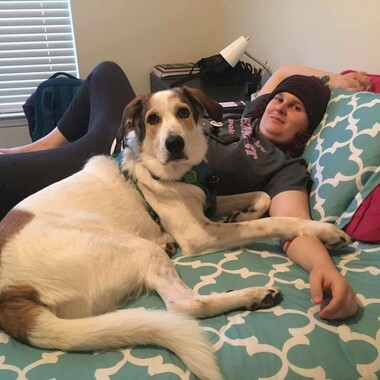Western Carolina University (21)
View all
- Canton Champion Fibre Company (2308)
- Cherokee Traditions (291)
- Civil War in Southern Appalachia (165)
- Craft Revival (1942)
- George Masa Collection (137)
- Great Smoky Mountains - A Park for America (3080)
- Highlights from Western Carolina University (422)
- Horace Kephart (973)
- Journeys Through Jackson (159)
- LGBTQIA+ Archive of Jackson County (89)
- Oral Histories of Western North Carolina (318)
- Picturing Appalachia (6617)
- Stories of Mountain Folk (413)
- Travel Western North Carolina (153)
- Western Carolina University Fine Art Museum Vitreograph Collection (129)
- Western Carolina University Herbarium (92)
- Western Carolina University: Making Memories (738)
- Western Carolina University Publications (2491)
- Western Carolina University Restricted Electronic Theses and Dissertations (146)
- Western North Carolina Regional Maps (71)
- World War II in Southern Appalachia (131)
University of North Carolina Asheville (6)
View all
- Allanstand Cottage Industries (62)
- Appalachian National Park Association (53)
- Bennett, Kelly, 1890-1974 (1463)
- Berry, Walter (76)
- Brasstown Carvers (40)
- Carver, George Washington, 1864?-1943 (26)
- Cathey, Joseph, 1803-1874 (1)
- Champion Fibre Company (233)
- Champion Paper and Fibre Company (297)
- Cherokee Indian Fair Association (16)
- Cherokee Language Program (22)
- Crowe, Amanda (40)
- Edmonston, Thomas Benton, 1842-1907 (7)
- Ensley, A. L. (Abraham Lincoln), 1865-1948 (275)
- Fromer, Irving Rhodes, 1913-1994 (70)
- George Butz (BFS 1907) (46)
- Goodrich, Frances Louisa (120)
- Grant, George Alexander, 1891-1964 (96)
- Heard, Marian Gladys (60)
- Kephart, Calvin, 1883-1969 (15)
- Kephart, Horace, 1862-1931 (313)
- Kephart, Laura, 1862-1954 (67)
- Laney, Gideon Thomas, 1889-1976 (439)
- Masa, George, 1881-1933 (61)
- McElhinney, William Julian, 1896-1953 (44)
- Niggli, Josephina, 1910-1983 (10)
- North Carolina Park Commission (105)
- Osborne, Kezia Stradley (9)
- Owens, Samuel Robert, 1918-1995 (11)
- Penland Weavers and Potters (36)
- Roberts, Vivienne (15)
- Roth, Albert, 1890-1974 (142)
- Schenck, Carl Alwin, 1868-1955 (1)
- Sherrill's Photography Studio (2565)
- Southern Highland Handicraft Guild (127)
- Southern Highlanders, Inc. (71)
- Stalcup, Jesse Bryson (46)
- Stearns, I. K. (213)
- Thompson, James Edward, 1880-1976 (226)
- United States. Indian Arts and Crafts Board (130)
- USFS (683)
- Vance, Zebulon Baird, 1830-1894 (1)
- Weaver, Zebulon, 1872-1948 (58)
- Western Carolina College (230)
- Western Carolina Teachers College (282)
- Western Carolina University (2008)
- Western Carolina University. Mountain Heritage Center (18)
- Whitman, Walt, 1819-1892 (10)
- Wilburn, Hiram Coleman, 1880-1967 (73)
- Williams, Isadora (3)
- Cain, Doreyl Ammons (0)
- Crittenden, Lorraine (0)
- Rhodes, Judy (0)
- Smith, Edward Clark (0)
- Appalachian Region, Southern (3032)
- Asheville (N.C.) (1945)
- Avery County (N.C.) (26)
- Blount County (Tenn.) (195)
- Buncombe County (N.C.) (1680)
- Cherokee County (N.C.) (283)
- Clay County (N.C.) (556)
- Graham County (N.C.) (238)
- Great Smoky Mountains National Park (N.C. and Tenn.) (525)
- Haywood County (N.C.) (3573)
- Henderson County (N.C.) (70)
- Jackson County (N.C.) (4925)
- Knox County (Tenn.) (35)
- Knoxville (Tenn.) (13)
- Lake Santeetlah (N.C.) (10)
- Macon County (N.C.) (421)
- Madison County (N.C.) (216)
- McDowell County (N.C.) (39)
- Mitchell County (N.C.) (135)
- Polk County (N.C.) (35)
- Qualla Boundary (982)
- Rutherford County (N.C.) (78)
- Swain County (N.C.) (2185)
- Transylvania County (N.C.) (270)
- Watauga County (N.C.) (12)
- Waynesville (N.C.) (86)
- Yancey County (N.C.) (72)
- Aerial Photographs (3)
- Aerial Views (60)
- Albums (books) (4)
- Articles (1)
- Artifacts (object Genre) (228)
- Bibliographies (1)
- Biography (general Genre) (2)
- Cards (information Artifacts) (38)
- Clippings (information Artifacts) (192)
- Copybooks (instructional Materials) (3)
- Crafts (art Genres) (622)
- Depictions (visual Works) (21)
- Design Drawings (1)
- Digital Moving Image Formats (2)
- Drawings (visual Works) (185)
- Envelopes (101)
- Exhibitions (events) (1)
- Facsimiles (reproductions) (1)
- Fiction (general Genre) (4)
- Financial Records (12)
- Fliers (printed Matter) (67)
- Glass Plate Negatives (381)
- Guidebooks (2)
- Internegatives (10)
- Interviews (823)
- Land Surveys (102)
- Letters (correspondence) (1045)
- Manuscripts (documents) (618)
- Maps (documents) (177)
- Memorandums (25)
- Minutes (administrative Records) (59)
- Negatives (photographs) (6090)
- Newsletters (1290)
- Newspapers (2)
- Notebooks (8)
- Occupation Currency (1)
- Paintings (visual Works) (1)
- Pen And Ink Drawings (1)
- Periodicals (194)
- Personal Narratives (10)
- Photographs (12977)
- Plans (maps) (1)
- Poetry (6)
- Portraits (4568)
- Postcards (329)
- Programs (documents) (181)
- Publications (documents) (2444)
- Questionnaires (65)
- Relief Prints (26)
- Sayings (literary Genre) (1)
- Scrapbooks (282)
- Sheet Music (2)
- Slides (photographs) (402)
- Songs (musical Compositions) (2)
- Sound Recordings (802)
- Specimens (92)
- Speeches (documents) (18)
- Tintypes (photographs) (8)
- Transcripts (329)
- Text Messages (0)
- A.L. Ensley Collection (275)
- Appalachian Industrial School Records (7)
- Appalachian National Park Association Records (336)
- Axley-Meroney Collection (2)
- Bayard Wootten Photograph Collection (20)
- Bethel Rural Community Organization Collection (7)
- Blumer Collection (5)
- C.W. Slagle Collection (20)
- Canton Area Historical Museum (2110)
- Carlos C. Campbell Collection (462)
- Cataloochee History Project (64)
- Cherokee Studies Collection (4)
- Daisy Dame Photograph Album (5)
- Daniel Boone VI Collection (1)
- Doris Ulmann Photograph Collection (112)
- Elizabeth H. Lasley Collection (1)
- Elizabeth Woolworth Szold Fleharty Collection (4)
- Frank Fry Collection (95)
- George Masa Collection (173)
- Gideon Laney Collection (452)
- Hazel Scarborough Collection (2)
- Hiram C. Wilburn Papers (28)
- Historic Photographs Collection (236)
- Horace Kephart Collection (861)
- Humbard Collection (33)
- Hunter and Weaver Families Collection (1)
- I. D. Blumenthal Collection (4)
- Isadora Williams Collection (4)
- Jesse Bryson Stalcup Collection (47)
- Jim Thompson Collection (224)
- John B. Battle Collection (7)
- John C. Campbell Folk School Records (80)
- John Parris Collection (6)
- Judaculla Rock project (2)
- Kelly Bennett Collection (1482)
- Love Family Papers (11)
- Major Wiley Parris Civil War Letters (3)
- Map Collection (12)
- McFee-Misemer Civil War Letters (34)
- Mountain Heritage Center Collection (4)
- Norburn - Robertson - Thomson Families Collection (44)
- Pauline Hood Collection (7)
- Pre-Guild Collection (2)
- Qualla Arts and Crafts Mutual Collection (12)
- R.A. Romanes Collection (681)
- Rosser H. Taylor Collection (1)
- Samuel Robert Owens Collection (94)
- Sara Madison Collection (144)
- Sherrill Studio Photo Collection (2558)
- Smoky Mountains Hiking Club Collection (616)
- Stories of Mountain Folk - Radio Programs (374)
- The Reporter, Western Carolina University (510)
- Venoy and Elizabeth Reed Collection (16)
- WCU Gender and Sexuality Oral History Project (36)
- WCU Mountain Heritage Center Oral Histories (25)
- WCU Oral History Collection - Mountain People, Mountain Lives (71)
- WCU Students Newspapers Collection (1923)
- Western North Carolina Tomorrow Black Oral History Project (69)
- William Williams Stringfield Collection (2)
- Zebulon Weaver Collection (109)
- African Americans (390)
- Appalachian Trail (35)
- Artisans (521)
- Cherokee art (84)
- Cherokee artists -- North Carolina (10)
- Cherokee language (21)
- Cherokee pottery (101)
- Cherokee women (208)
- Church buildings (190)
- Civilian Conservation Corps (U.S.) (111)
- College student newspapers and periodicals (2012)
- Dams (108)
- Dance (1023)
- Education (222)
- Floods (63)
- Folk music (1015)
- Forced removal, 1813-1903 (2)
- Forest conservation (220)
- Forests and forestry (1198)
- Gender nonconformity (4)
- Great Smoky Mountains National Park (N.C. and Tenn.) (181)
- Hunting (47)
- Landscape photography (25)
- Logging (122)
- Maps (83)
- Mines and mineral resources (9)
- North Carolina -- Maps (18)
- Paper industry (38)
- Postcards (255)
- Pottery (135)
- Railroad trains (72)
- Rural electrification -- North Carolina, Western (3)
- School integration -- Southern States (2)
- Segregation -- North Carolina, Western (5)
- Slavery (5)
- Sports (452)
- Storytelling (243)
- Waterfalls -- Great Smoky Mountains (N.C. and Tenn.) (66)
- Weaving -- Appalachian Region, Southern (280)
- Wood-carving -- Appalachian Region, Southern (328)
- World War, 1939-1945 (173)
Interview with Lyndan Jones, transcript
Item
Item’s are ‘child’ level descriptions to ‘parent’ objects, (e.g. one page of a whole book).
-
-
Lyndan Jones 1 HL_PAR260_Taylor _Jones_2023-11-09 Interviewee: Lyndan Jones Interviewer: Hannah Taylor Interview Date: November 09, 2023 Location: Jackson County, NC Length: 23:05 Hannah Taylor: 0:00 Today's date is November 9, 2023. My name is Hannah Taylor. And today I have Lyndan Jones and you are from: Lyndan Jones: 0:09 I'm from Bethel, North Carolina. HT: 0:11 Okay. And where were you born? LJ: 0:14 I was born in Winston Salem, North Carolina. HT: 0:16 Awesome. And what are your preferred pronouns? LJ: 0:19 She/her. Thanks for asking. HT: 0:21 Yeah. And how long have you been living in the Cullowhee, North Carolina area? LJ: 0:26 Yeah, I moved here in 2017. When I came to Western, then after I graduated in 2021, I moved to Sylva. So I live in Sylva now. HT: 0:29 Awesome. So if you don't mind just share a couple of things regarding gender and sexuality and religion, it could be just the origin. So maybe if you want to start with beginning childhood, you could do that. LJ: 0:51 Yeah, so I was raised half Southern Baptist, half atheist, which is a really fun combination. So like, I had very differing views about the world and what was good and what was right. And I Lyndan Jones 2 also have three little brothers. So I think it's funny that as a queer woman, all those masculine things I really wanted to do. Like my gender was so affirmed without me even having those words, because we raced our bikes, and we went hunting and fishing and camping, like those are all the things I love to do. So it wasn't until I really got out of my house with all my little brothers that I realized my gender was a little deviant, I guess you could say are like gender non-conforming, to where that's kind of where the queer bubble comes in. But I feel like religion is such an interesting player in that, because you kind of learn how you're supposed to present through the lens of religion. Right? HT: 1:45 So to hop off of that, what would you say your gender identity is? Can you kind of explain that? Yeah, absolutely. LJ: 1:52 So I identify as a woman, I feel very strongly to like the feminine divine power. But I also feel that our expression of gender, just kind of separate, just to how we identify. My expression of gender is very gender fluid. I like to dress very feminine and very masculine. And so there's days you catch me in work boots, and shorts, and I'm mowing a lawn. And then there's days when I’m in a dress with sparkles, and that entire spectrum makes me super comfortable. So I think it's fun to see I move all the way through it. HT: 2:23 And there's like a unique kind of confidence in that too. But talk to me a little bit about, so you grew up Southern Baptist right, kind of half Southern Baptist and half atheist. So can you just kind of talk about how that developed over time and where you are now? LJ: 2:47 Yeah, so religion as a whole, we never practiced like in a church, right? It was very much my mom being like, “Honey, Jesus told us not to steal. And Jesus told us not to cheat. And these are things you should listen to. This is good stuff Jesus said.” I'm like, Mom you’re right. Like this Jesus guy, like, seems really cool. Like, he had long hair. He was hanging out with everybody. Twelve men following him around, he sounds like a queer dude to me. And then I had my dad who was like, “hey, there is no higher power. You're in this for yourself, you've got to make your life happen.” And so I think it was cool to have faith and these morals and rules, but also the freedom that my dad gave us. That was just kind of like, Girl, whatever. We're all just on a floating rock. Nothing makes sense. For sure. So yeah, I think in a fun way, it definitely shaped where like at first I'm like, oh no I'm a woman, I need to wear certain clothes, I need to cook, I need to clean you know, because the Bible, and my dad being like, nothing is real, was a really cool way to play with that. HT: 2:53 That's really awesome. And so in the dynamic, I guess, between your parents were they very aware of each other's religion and would bounce off of each other? How did that work? Lyndan Jones 3 LJ: 3:52 Yeah, to me, it was always just funny. I think I think we just handle everything with a sense of humor. But you know, it'd be like, my mom would be like okay you know, gotta thank Jesus or, you know, we, we celebrate Christmas and stuff like that. But it's more of an American thing I feel than the actual attachment to any type of God or religion. And my mom was very adamant that the church, as an organization, can very easily be manipulated and wrong. And so for my dad, it just kind of poisoned religion as a whole, but my mom kind of held on to part of it. So typically, they're just in these little, you know, like, Oh, yeah. Or if you ask your father, not Jesus, you know, but it was very playful and fun. HT: 4:27 Okay, awesome, and so as far as developing that into who you are now, how would you say like, where you're, where would you say you're at? LJ: 4:35 Such a good question. So when I was 15, I started doing yoga. And I started doing yoga because I have chronic pain in my hips. I'm like, crooked on both sides. I just wear a lift and it used to cause a lot of chronic pain and any doctor would just be like, Oh, you shouldn't move so much. Like you shouldn't play a sport. I was like, there has to be another way. And I think yoga as a physical practice became this spiritually driven practice where I was like wow, I can heal my own body. What else can I do? And so it put me on this like spiritual path of like our own divine energy and our own divine intuition and what can guide us and heal us and shape us. And so I, I pull from atheism and from Southern Baptism all the time, because every single religion I've ever been exposed to is right, to some degree, you know, they have like these really cool morals and similarities and like it's focused on community, and having faith in the process and seeing the bigger picture. And so I feel like now I would say I'm a very spiritual person. Okay. And all of those things influence that. HT: 5:38 Yeah. Awesome. Thank you for sharing that. So to kind of shift gears a little bit. Can you talk about how that's affected you, specifically in North Carolina, like Sylva, North Carolina? Do you feel that you're supported in, in that belief of just being like.. LJ: 5:59 I say it's kind of a very funny thing. Sylva is a magical place. And I think everyone who lives there kind of shares that sentiment, but there's this magnetic frequency of just diversity and difference that I feel in this place where people are really able to come as who they are. So there's not the need to cover parts of us or only show half or codeswitch in these different situations. Whereas like, when I was home for a long time, it was very hard for my parents just in my presentation and confidence and being like, I'm a queer, I'm a lesbian. I'm a dyke. Like these words, just make them so uncomfortable. Or like, when I shaved my head bald girl, I looked like Eminem, like it was straight up. And I was like, Mom, this is just how I wanted to Lyndan Jones 4 look like this is fine. And for her, she's just like, well, what are people gonna think of you? And I'm like Oh Mommy, I don't care. No me importa, you've got to think about yourself. So I feel like in Sylva, it's no problem at all. Like, my yoga class is on Main Street Sylva on Tuesday nights. Awesome. I work at a coffee shop where I dress so femme and so masc. We have events like drag karaoke, this is all happening in downtown Sylva to where I feel very at home here, but I'm very in tune with my community. HT: 7:11 Okay. Yeah, for sure. And so would you say that with the Western campus, Western Carolina campus as well, did you feel included I guess when you were here as a student, as much as you do in the community now that you've graduated? LJ: 7:25 Definitely not as much like that. That also just comes with acceptance. And I feel like college students in particular are very insecure of themselves. And Western’s campus is a perfect example of, you look around and most people are wearing the same thing. Yeah, you look around, and there's jeans and a T-shirt, maybe khakis and a polo, like freakin crazy. And like, so everyone, I think is just very uniform. So when you stand out, is a little bit more like oh that person. But I will say I went to free yoga classes on campus at 6:30 am in the Cullowhee United Methodist Church, on Tuesdays and Thursdays, and that was really important for me. And we were you know, I participated in things like Safe Zone that were very queer-focused. So I think, again you tap in and you find your community. But as a whole, like campus climate, I don't think any campus is really as like, open as they feel they are because it's still students, right. And they’re fresh out of high school fresh out of their hometown, fresh out of wherever they came from. HT: 8:29 Yeah, there's like that variety of people just coming from everywhere, all different states and stuff. So LJ: 8:35 And then kind of assimilating to like this Western culture, like Western Carolina culture, that's like, I wear Catamount T-Shirts and slippers to class sometimes. And that's totally normal. [laughs] HT: 8:46 For sure. Awesome. And thank you for sharing again. So I know that you did radio in college as well. So can you talk a little bit about that? And your experiences as someone who is queer and someone in the community and doing interviews, do you feel that that ever affected what you did here in the radio station because of that diverse kind of area and population? LJ: 9:16 Lyndan Jones 5 Yeah, so running the radio station, like I was the manager of WWCUFM for three years. And we went from 90.5, which was like a classic rock station and we transitioned over to 95.3, which that's a gay joke right there, even my radio station transitioned. But I loved the classic rock vibe. Like it was so much fun. And the diversity of shows that we had, was so telling. I would say through a queer lens there was a lot of censorship in a way that I didn't really expect. Like I had a show called Queer Talk and Queer Talk had to come on from 10 to midnight, because it had to be after daytime hours. Like it had to be Night night hours because “what if someone hears the gay people talking on the radio.” And so that was kind of my first interaction with like, “wow, y'all really think this is like, scary nighttime devil adjacent type stuff.” HT: 10:12 Yeah something that needs to be censored, almost. LJ: 10:14 Yeah. So I thought that was very interesting. And you know what? We went with it though. And the perk of being after 10 is you can also use a little bit more language a little bit more, you can say, bitch? Daytime hours, it's really strict. Like, I think we could say ass, I'd have to look at the rules don't FCC me right now. But so I think it gave us a little bit of freedom. So again, we just kind of took that push back is like, we're gonna use this to our advantage. But the radio station was an interesting case of censorship. HT: 10:46 Cool. Yeah. And thank you for that. The unique perspective, especially because doing radio, LJ: 10:52 I love radio. I love radio, I would be working in radio right now if it was a viable job in this town. HT: 11:00 Okay, so kind of with that movement, I guess, do you feel that your identity has ever affected your career path? Do you feel that you might be doing something different, if you had a different perspective or maybe… How does your identity play… LJ: 11:30 Such a timely question. Okay, so I graduated in 2021. And I got a Bachelor in Communication, and a Bachelor in Spanish, right? So I was like, I’m gonna get a job easy. This is gonna be great. Well, there were a few jobs that I applied to, that literally cited my presentation as the reason I didn't get the job. And one of those was at Western Carolina University. And their exact wording was that I was too flamboyant for the position. And I didn't meet the target audience that they were looking for. And you know, at first I was like, what? And then I was like, You know what? Thank you. Actually, thank you so much for telling me before I even get into this environment that I'm qualified for, that I'm educated for, this job that I can do. But if everyone around me would have been like, uncomfortable because, because I'm like, a short haired, loud lesbian. I get it. So I think at first it seemed like, scary, but now I'm really appreciative. And like, Lyndan Jones 6 I used to not hide that I was queer, but I wouldn't mention it, right. Like, it wasn't like on the forefront of anything. It was just something within me. But if you think about how heterosexual people, their families are in their offices, their kids are on their Facebook page, you know, it's like heterosexual people get that heteronormative privilege to where like, that is part of who you are. But when you're queer, you're like, kind of expected to hush that. And I really see that changing in the near future. So like, now my LinkedIn is literally a photo of me in Sylva Pride. Like, if you look at my LinkedIn, I want you to know that I'm in the rainbow mafia and I ain’t playin. It's like, I'm glad that these people that, you know, openly say, I don't want to hire a queer person. Like, I'm actually grateful for that. That kind of sucks for my career path. I work in a coffee shop right now, you know, which I could have worked at a coffee shop without a college degree. So it's a little bit frustrating. HT: 13:23 Yeah, I definitely can understand and so, to add to that, would you say the community has supported you otherwise, outside of the Sylva, western North Carolina area? Do you feel like as you branch out, do you feel that that community is more supportive or less supportive, or… LJ: 13:49 Right now I feel like the queer community of Sylva is like, this magical dreamland. Like the Alice in Wonderland rabbit hole, like I fell down it, like genuinely my best friend is a drag queen in Sylva, I'm the website designer for Sylva Pride. Like, I'm so involved in this community and these people that I think that's something really unique and powerful. The power of human connection. And so I'm sure that wherever I go to next I'll, I'll find that community and if not I’ll create it, and be it, see it. But in general where I'm from, it's just not the same queerness and that's eastern North Carolina. It's like, it's not like there's less queer people there. Again, I feel like if people move to Sylva though as a queer person, they wouldn't think that there's a lot going on. For sure. Once you get in you tap in somebody knows somebody, you see all these drag shows in these pop up nights and like, hell we don't have a gay bar, but all the gay people know that one bar that we all go to. HT: 14:50 Yeah, yeah. So can I add to that, can you talk a little bit about how you got into drag and like your journey in that aspect? LJ: 14:57 Yeah. So my best friend is which trans woman, and she started doing drag six years ago. And I was her roommate three years ago. And so when she would have shows I would work them, right. So I would like help the Queens put on wigs, outfit changes, carrying props, or like in the middle of your show if you need a setup or like a prop, I would run that. And now I'm on stage kitten and a stage kitten picks up the dollar bills that's the queens throw. And like if you do a wig reveal, or like you drop a shoe, that's your little kitten. Just a person there to pick it up for you. Yeah. And so I love drag. it is like the people that come to drag. I'm talking about like old people, young people. Everybody in the middle. It's so fun, high energy, loving. It's like, I think Lyndan Jones 7 drag shows are up there with like gay weddings. Like that's how much love and positive positivity are there. So all credit goes to Beulah Land, my best friend, for getting me into the drag scene. HT: 15:56 Yeah. And so as I like to add to that a little bit, and you said no matter whether you were to branch out or move somewhere else and find that communities, do you feel that you would continue to stay involved with drag? Or do you think that would be something that you just kind of wanted to do here? Because that's like, you have the friends and the connection? LJ: 16:19 It's a good question, but no, I think I'll always be in that scene. I think that scene is where you get to so a lot of drag queens, maybe maybe not a lot, I don't know. Like, it is a common narrative that drag is a way for us to put on this character and persona that allows us to feel like so safe and affirmed and powerful. It's like when you put on those clothes that just make you feel like a queen like a princess like you are living your best life. And so, to see these moments, that is why I love drag, and so you know, wherever my bestie is ‘cause she's gonna be famous honey, she gonna be she'll be like Trixie Mattel, like traveling the world. And you know, maybe I'll be in her little tour bus with her. Oh, whatever community I'm in. We will be in the drag scene. HT: 17:05 Okay, awesome. So to kind of switch gears a little bit. Can you talk a little bit more about how your currently religious beliefs were incorporated in like, how did you feel supported whenever you were in the western North Carolina area, and like on campus as well? LJ: 17:28 So honestly, I can't speak much to my on campus experience my because my religious path and I would call it a spiritual path is very inward and personal. So with Western’s campus other than working in churches, which I love the energies of, especially the Cullowhee United Methodist Church, I worked for the language enhancement after school program. And so that entire program is based out of a church. and those people are so powerful. And like Jim Dean at Homebase, like these people who are involved with religion, are so cool and powerful and doing really great things for our community. Religion outside of this in Sylva, like the Episcopal Church in downtown Sylva, literally threw a pride mass, the week of Pride, and it was an all queer service. And a lot of people that have been out of the church for a really long time came to this and it was heavy, you know, seeing people, especially like myself and my best friend who we identify so much as Southern Baptists. And you know, to kind of not be welcomed in that space where we're from to be re-welcomed into a church was almost like, hard. Yeah, like people was cry… the spirit was in the room. I would say now it just manifests in a daily yoga practice, meditation practices, my girlfriend, and I pray over our food when we eat. Sometimes when we be praying over our water, like you don't know where that water that you’ve just Lyndan Jones 8 gotta bless the water. Give it all positivity. Yeah, so there's a lot of power to it. But I wouldn't say that any of that came from Western’s campus. HT: 19:07 So I'm just curious. So in my talking about yoga, and I know you do the yoga sessions every week, but can you elaborate more of the benefits of that I've have you've grown just in continuously practicing yoga through your life? LJ: 19:26 So what I have that makes me crooked, it's called hemihypertrophy. Basically just means the right side of my body is bigger and longer than the left side. And so my entire life, I felt so disconnected to my body because she would just do me wrong, like my, like, I couldn't walk right. You know, I had so much pain, I was just so frustrated with my body. So yoga gave me this practice of literally turning inward and understanding that we are in our body. We are not our body. This is a vessel that allows us to interact with the world in some type of spiritual frequency, scientific, religious way that we're still trying to understand. And like in yoga, when you get into your brain and you visualize the inner workings of your body, you can truly see and heal parts of yourself. And so it started as a physical practice. But it turned into a very spiritual/mental practice to where, like if we want to manifest things, for our health, for our life, for our wealth, like yoga and being in touch with your body as a magical vessel is so important. HT: 20:35 Yeah. So you'd say the key element of your spiritual journey as growth from 100% leaving? Okay, cool. Um, and I guess my last question for you is, how has your overall identity grown? Do you feel like your identity is growing constantly? Or do you think that you just you are who you are, and you just know that that's who you are. LJ: 21:07 Never experienced that. People are like, I knew that I wanted to be a fireman my whole life, and I respect that. Yeah, that is so not my journey. I came to Western to do color guard and study nutrition. And I did not do either one of those things. Not even once, not even for five minutes. It's like, we make these decisions based on how we feel, and how we identify. That leads us to actually where we need to be to find out how we actually identify. So I think, even just coming out of college, you know, I went to grad school for teaching and became a teacher and I was like, Wait a minute. I've been in school my whole life. Since I was five years old. I've been under fluorescent lighting and a chair like, maybe this isn't what I want to do. So the most insane life changes have happened to me in the past two years, because I'm actually figuring out who I am not who I was projected to be, or who I could be, who I am, not this goal I'm working towards or this degree I'm working towards. I just am a person existing living learning about myself all the time. And now I'm like, Well, I'm a website designer housecleaner, barista, I want to be a comedian, and a seamstress, and a voice narrator, and a voice actress, and a radio host. And all of that is totally valid. All could happen. Who knows? Yeah, who knows? Lyndan Jones 9 HT: 22:31 Cool. Well, thank you so much for sharing your stories. And just know that these will help at other people who listen, and we appreciate it. LJ: 22:44 I'm like thinking of all the labels. You could like put on a person, you know, because you're like, Yeah, never liked one thing. But it's like a queer, vegan, lesbian, Yogi, barista. It's so funny when you put all the things together, like small town living, Wow.
Object
Object’s are ‘parent’ level descriptions to ‘children’ items, (e.g. a book with pages).
-
Lyndan Jones shares her experience growing up with a Southern Baptist parent, an atheist parent, and three younger brothers and how these things shaped her views of the world. Jones tells about finding her community in a small western North Carolina town, and how yoga has helped her to overcome physical and spiritual difficulties, including the condition hemihypertrophy. She discusses her love for radio and her experience as a radio host at Western Carolina University which includes some censorship.
-
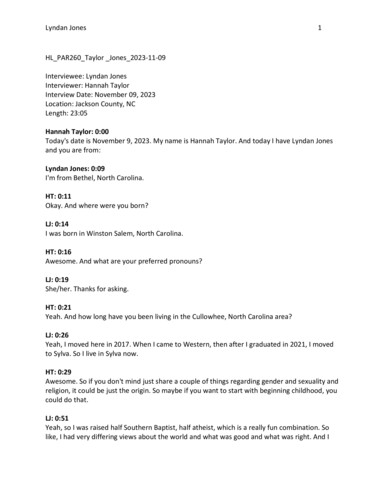

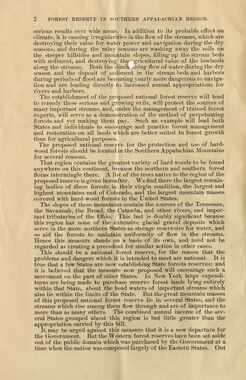

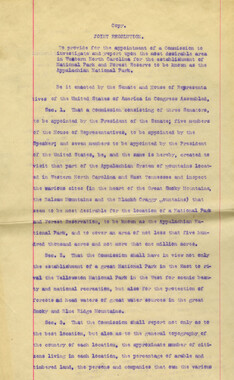
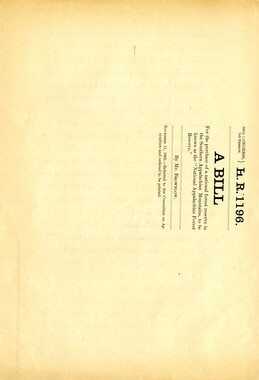
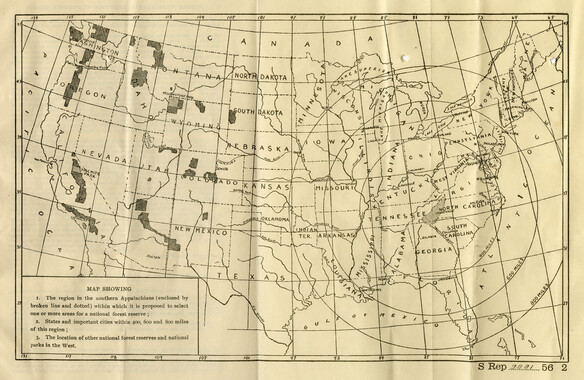

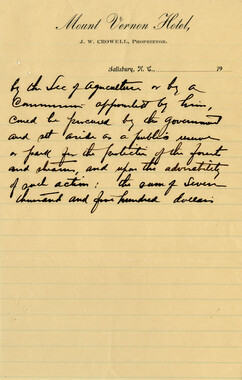




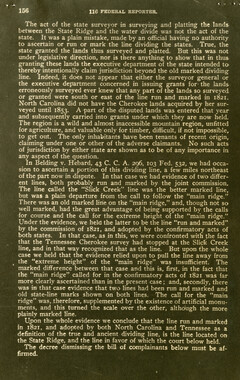


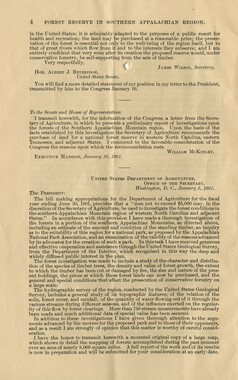

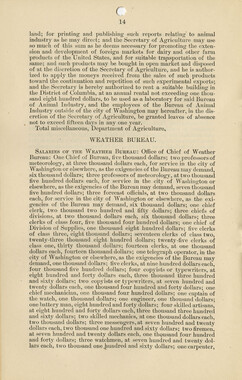




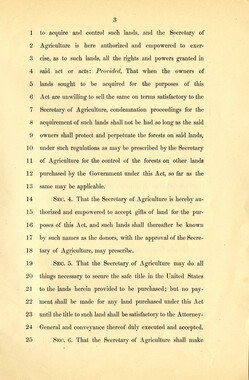
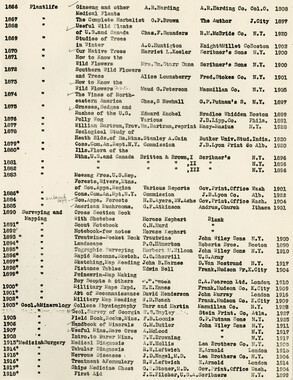
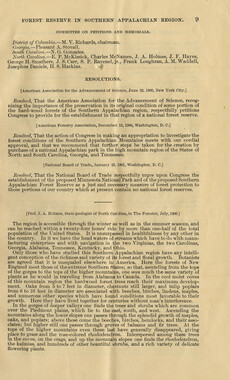
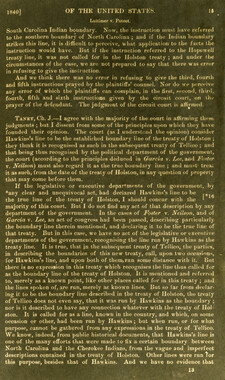


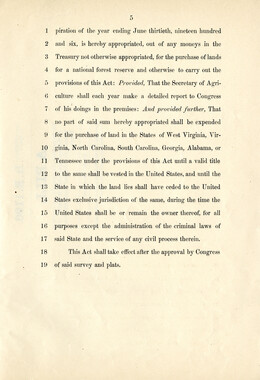


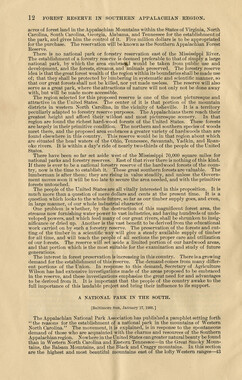
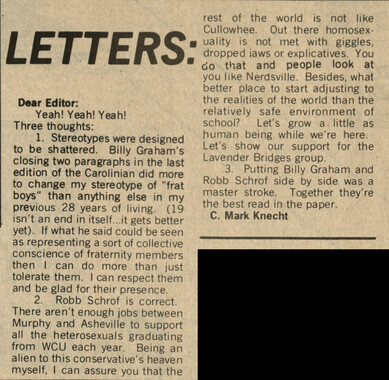
.jpg)
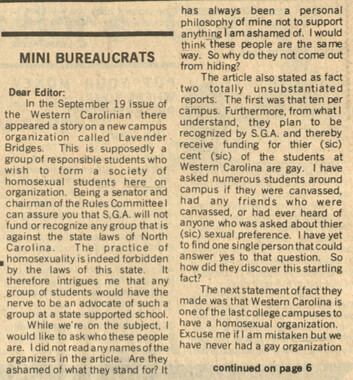
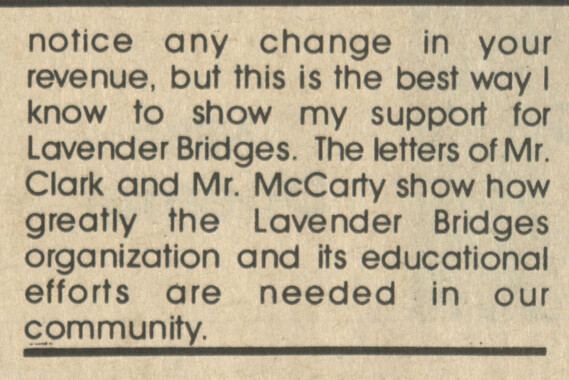
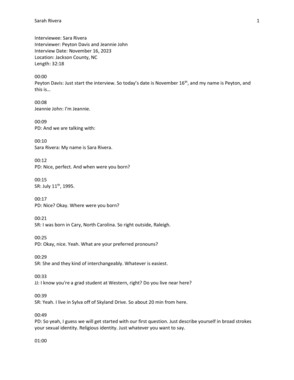

.jpg)





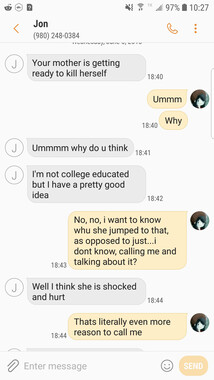
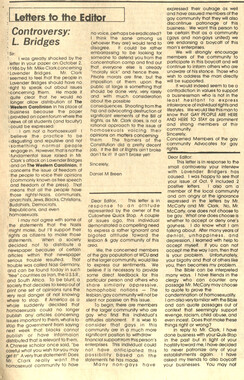

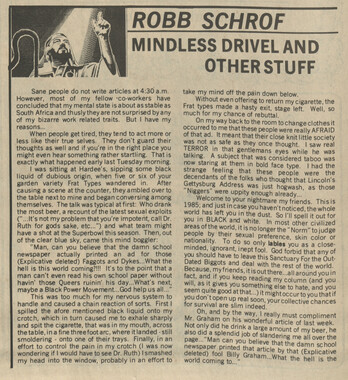
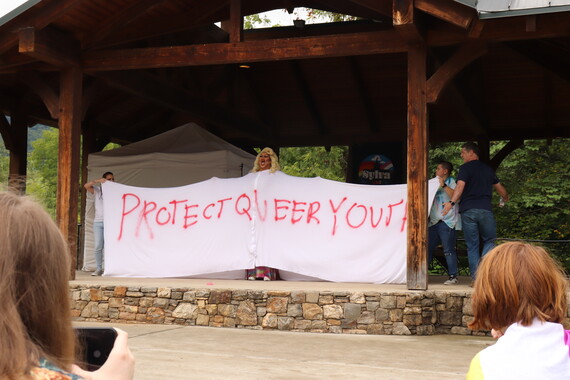

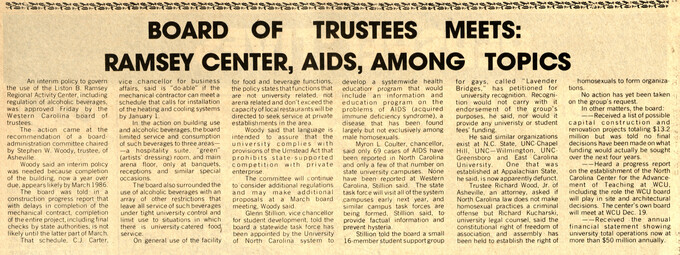
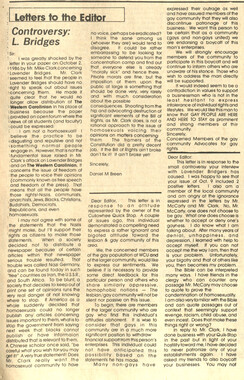
.jpg)



